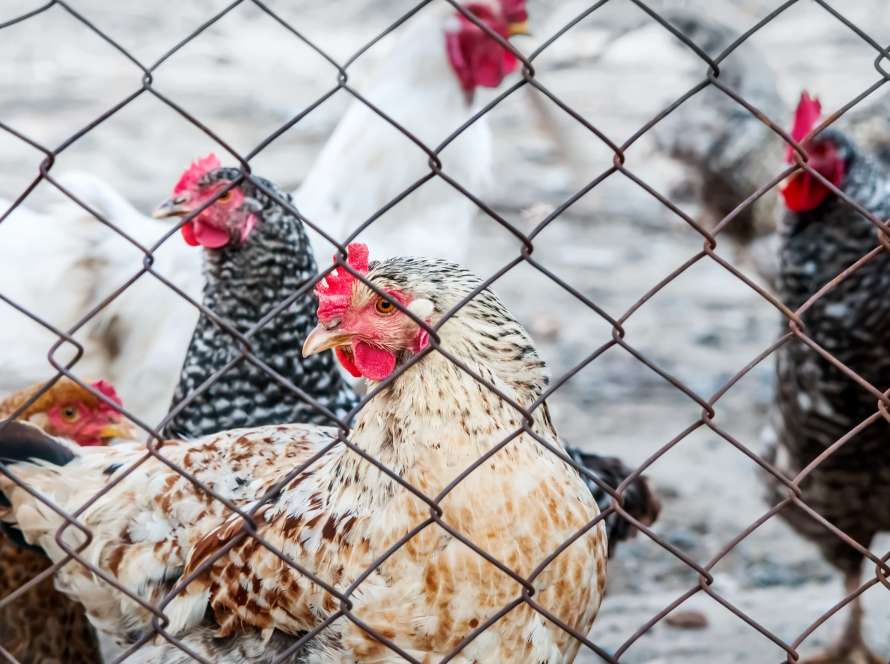Agriculture is a vital sector of the economy and there are many different types of businesses involved in this industry. From small family farms to large commercial operations, each type of agricultural business has its own unique set of challenges and opportunities.
Family Farms
Family farms have been the backbone of American agriculture for generations. These operations are typically small to medium in size and are operated by a family or a small group of partners. While most family farms specialize in a particular type of crop or livestock, some diversify their operations to include multiple types of agriculture.
The key to success for family farms is efficient operation and management. With limited resources, these businesses must carefully plan and execute every aspect of their operation to maximize production. Family farms also rely heavily on the labor of their family members and often hire only a few seasonal workers. This can make labor management a challenge, but also helps to create a close-knit and dedicated work force.
Commercial Farms
Commercial farms are large-scale agricultural operations that focus on producing crops or livestock for sale. These businesses may sell their products directly to consumers or through wholesale channels. Commercial farms typically have more resources than family farms, which allows them to invest in more land, equipment, and labor.
The size and scope of commercial farms can vary significantly. Some operations may only span a few acres, while others may encompass tens of thousands of acres. The type of crops or livestock produced also varies widely, with some commercial farms specializing in a single type of agriculture while others produce a variety of products.
The key to success for commercial farms is efficient production. To maximize profits, these businesses must carefully manage every aspect of their operation, from planting and harvesting to marketing and sales. Commercial farms also face stiff competition from other businesses in the same industry, so they must be able to produce high-quality products at competitive prices.
Agricultural Cooperatives
Agricultural cooperatives are businesses owned and operated by farmers or ranchers. These organizations typically provide their members with access to shared resources, such as equipment, land, storage facilities, and marketing channels. Agricultural cooperatives may also offer financial services, crop insurance, and other benefits to their members.
The key to success for agricultural cooperatives is strong member participation. To be successful, these businesses must have a critical mass of members who are actively involved in the cooperative’s activities. Agricultural cooperatives also need to be well-managed and have a clear vision for their business.
Farm Business
If you’re thinking about starting a farm business, there are a lot of things to consider. First, you need to decide what kind of farm business you want to start. Are you interested in raising livestock, growing crops, or both? Once you’ve decided on the type of farm business you want to start, you need to start thinking about the logistics. Where will your farm be located? How much land do you need? What kind of equipment will you need? These are just a few of the questions you need to answer before you can start your farm business.
Once you’ve answered all of the above questions, you can start to develop your business plan. Your business plan should include your farm’s goals, a marketing plan, and a financial plan. Your farm’s goals will help you determine what kind of business you want to run and how you want to grow your business. Your marketing plan will help you promote your farm and sell your products. And your financial plan will help you determine how much money you need to start your farm and how you will make money once your farm is up and running.
If you’re ready to start your farm business, there are a few things you need to do to get started. First, you need to find the right location for your farm. The location of your farm will impact the type of farming you can do, the climate, the soil, and more. Once you’ve found the perfect location for your farm, you need to get started on the construction. This includes clearing the land, building fences and barns, and more. After your farm is built, you can start planting crops or raising livestock.
Starting a farm business is a lot of work, but it can be very rewarding. If you have a passion for agriculture and are willing to put in the hard work, starting a farm business may be right for you.
Fisheries Business
If you’re thinking of starting a fisheries business, there are a few things you need to know. First, you’ll need to obtain a business license from the state in which you plan to operate. You’ll also need to have a clear understanding of the fisheries regulations that apply to your business.
In addition to the above, there are a few other things to keep in mind when starting a fisheries business. Here are a few tips:
1. Do your research
Before starting any business, it’s important to do your research and make sure you have a clear understanding of the industry you’re entering. This is especially true for the fisheries industry, as there are many regulations that you’ll need to be aware of. Make sure you understand the different types of licenses available and what each one entitles you to before making any decisions.
2. Have a solid business plan
As with any business, it’s important to have a solid business plan in place before you get started. This will help you determine your start-up costs, as well as how you plan to market your business and generate revenue.
3. Find the right location
The location of your fisheries business is important for a number of reasons. First, you’ll need to be near a body of water where you can fish. You’ll also need to be in an area that has a high demand for fish, as this will help ensure that your business is successful.
4. Invest in quality equipment
If you’re going to be in the fishing business, you’ll need to invest in quality equipment. This includes things like nets, poles, and boats. Make sure you purchase durable equipment that can withstand the rigors of fishing on a daily basis.
5. Hire experienced staff
When it comes to hiring staff for your fisheries business, it’s important to hire individuals who have experience in the industry. This will ensure that your staff is knowledgeable about the different types of fish and how to properly care for them. Additionally, experienced staff will be able to handle the day-to-day operations of your business more efficiently.



